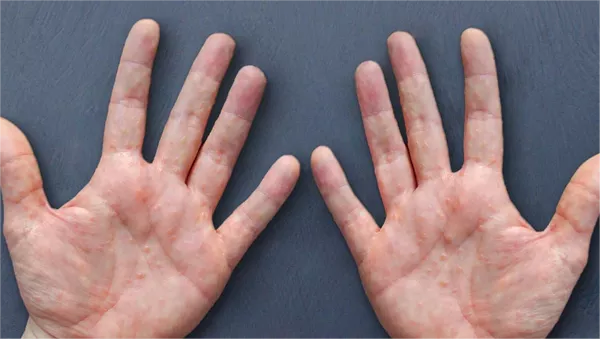Eczema, known for its itchy, painful rashes that can cause discomfort and even bleeding, presents significant challenges beyond its physical symptoms. Recent research from the National Eczema Association (NEA), featured in the June 2024 issue of the Skin Health and Disease Journal, highlights a concerning oversight in the medical community: the inadequate attention given to the mental health impacts of this inflammatory skin condition.
Atopic dermatitis (AD), the most prevalent form of eczema, affects approximately 16.5 million adults and 9.6 million children in the U.S. According to the NEA, individuals with AD face reduced quality of life due to disrupted sleep, impaired social interactions, and substantial psychological distress. Adults with AD are reported to have two-and-a-half to three times higher rates of anxiety and depression compared to the general population, with the risk escalating with disease severity. Moreover, there is an increased likelihood of suicidal thoughts among these individuals.
To gauge the level of psychological support provided to Americans living with eczema, the NEA conducted a survey involving 954 caregivers and adults affected by AD. The findings underscore a significant gap between the mental health needs of eczema patients and the awareness and actions of healthcare providers.
Wendy Smith Begolka, M.B.S., Chief Strategy Officer of Research, Medical, and Community Affairs at the NEA in Novato, CA, emphasized the implications of their research for eczema patients, caregivers, and healthcare providers alike. She noted that while some healthcare interactions do address mental health concerns related to eczema, a substantial portion of patients—42% of caregivers and adults, and 50% of patients themselves—report never discussing these issues with their primary eczema care providers. Furthermore, 64% of respondents were not referred to any mental health resources.
The research also revealed that eczema’s impact on mental health is pervasive across all levels of disease severity. Over 70% of respondents reported that their mental health had been affected by AD within the past year, with a notable number indicating frequent and prolonged periods of mental health burden correlating with disease intensity.
Smith Begolka explained that the psychological distress associated with eczema stems from its multifaceted impact on daily life, including debilitating itch, skin inflammation, sleep disturbances, and consequential disruptions to work, school, and social activities. This burden persists even when skin symptoms are well-managed, highlighting the ongoing challenges and uncertainties faced by individuals managing the condition.
Addressing these mental health challenges requires proactive engagement from both patients and healthcare providers. Smith Begolka emphasized the importance of patients initiating discussions about their mental well-being during medical visits, alongside conversations about physical symptoms. She acknowledged a growing awareness among healthcare providers of the link between eczema and mental health but stressed the need for more personalized, patient-centered approaches.
For children and teenagers with AD, the findings suggest a similar need for proactive mental health support, with ongoing analysis aimed at understanding and addressing their specific challenges.
In conclusion, Smith Begolka encouraged individuals affected by eczema to prioritize self-care and seek out available resources for stress management and mental health support. She highlighted the NEA’s EczemaWise app and upcoming community events like the Eczema Expo, which provide platforms for education, support, and community building among those impacted by AD.
Related Topics:

























